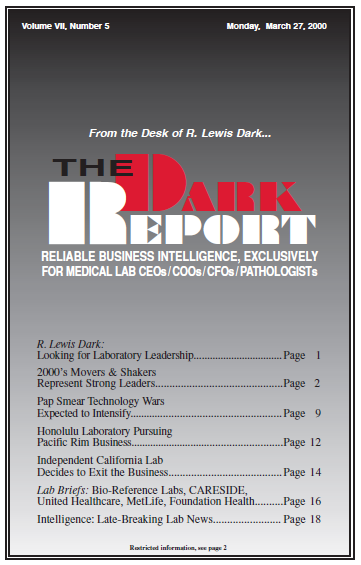CEO SUMMARY: With patience and persistence, Digene, Inc. is developing the effectiveness of its DNA-based HPV assay. Publication of recently-completed clinical trials provides evidence that Digene’s Hybrid Capture II ® HPV test, with further improvement, might become a relevant tool in the diagnostic pathway for cervical cancer. It’s another new technology with the potential to …
Pap Technology Wars Expected to Intensify Read More »
To access this post, you must purchase The Dark Report.


